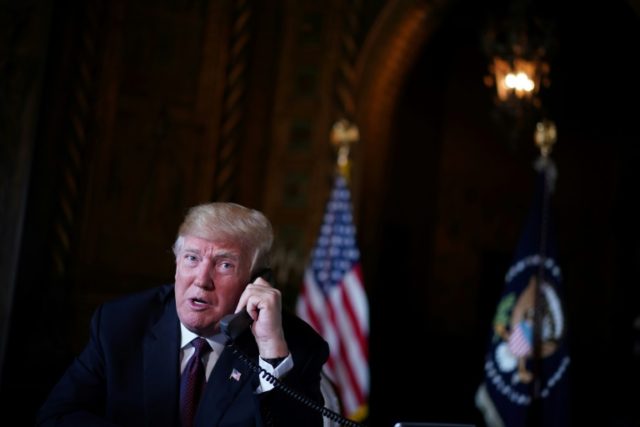President Donald Trump’s impact on the federal judiciary was recently on display when three judges he appointed to one federal appeals court quoted a fourth Trump judge on another court, rejecting arguments that courts should defer to federal authorities on how to interpret immigration laws.
Jasso Arangure is a lawful permanent resident (LPR, or green-card holder) who was convicted of home invasion in Michigan, which is a felony in that state. The U.S. Department of Homeland Security (DHS) began deporting him, arguing that this felony was a “crime of violence” under the Immigration and Nationality Act (INA), because it satisfied the “residual clause” in the relevant portion of the INA.
However, the U.S. Court of Appeals for the Sixth Circuit later held the residual clause to be unconstitutionally vague. So DHS filed a new deportation proceeding, arguing that the home invasion was a “burglary offense” under the INA, which is specifically regarded as a “crime of violence,” and thus that the alien was still deportable for his crime.
The appeal before the Sixth Circuit in this case is an in-the-weeds argument of whether the doctrine of claim preclusion required the U.S. government to raise all possible claims – such as a burglary argument – in the first deportation proceeding, meaning that if preclusion attaches to the case, the government missed its only opportunity by not including it as one of the original charges.
The U.S. Department of Justice (DOJ) argued on appeal that preclusion does not apply, and that under Chevron deference, courts should defer to how federal agencies interpret the INA. Chevron is a seminal Supreme Court case that has increasingly come under fire for how much power it gives to bureaucrats, with both of President Trump’s Supreme Court appointees – Justices Neil Gorsuch and Brett Kavanaugh – among those critics.
Although none of that may sound interesting to a general audience, one item of particular interest in this appeal is that the three-judge panel hearing this immigration appeal is entirely comprised of judges appointed by President Trump: Amul Thapar, John Bush, and John Nalbandian.
“Courts have always had an emphatic duty to say what the law is,” Thapar began for the Cincinnati-based appeals court, quoting the Supreme Court’s historic Marbury v. Madison case. He continued:
When dealing with agencies, this abdication by ambiguity is even more tempting—and even more problematic. Because, under Chevron, ambiguity means courts get to outsource their “emphatic” duty by deferring to an agency’s interpretation. But all too often, courts abdicate this duty by rushing to find statutes ambiguous, rather than performing a full interpretive analysis.
“This abdication by ambiguity impermissibly expands an already-questionable Chevron doctrine,” the Trump judges continued, going to on quote yet another Trump appointee, Judge James Ho of the Fifth Circuit, who likewise criticized Chevron.
Thapar has previously knocked still another deference doctrine, Auer deference, which concerns interpreting regulations instead of statutes. The Supreme Court recently granted review in a case to decide whether to overrule Auer.
The Trump administration has expressed a desire to reduce the size, scope, and cost of the federal government, consistent with the president’s campaign promises. Revisiting doctrines like Chevron and Auer would be extraordinary steps in that direction, and the president appears thus far successful in picking judges who share that philosophy.
The case is Arangure v. Whitaker, No. 18-3076 in the U.S. Court of Appeals for the Sixth Circuit.
Ken Klukowski is senior legal editor for Breitbart News. Follow him on Twitter @kenklukowski.

COMMENTS
Please let us know if you're having issues with commenting.